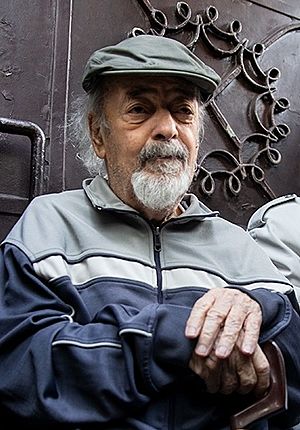Mohammad Maleki facts for kids
Mohammad Maleki (Persian: محمد ملکی; 11 July 1933 – 1 December 2020) was an important Iranian professor and writer. He was also a human rights activist who worked to protect people's rights. He became the head of the University of Tehran in 1979.
Contents
Early Life and Education
Mohammad Maleki was born in Tehran, Iran, on July 11, 1933. He studied at the University of Tehran. This is one of the most important universities in Iran. He later became a professor there.
Working for Human Rights
Maleki believed strongly in fairness and human rights. He helped start a group called Legam. This group worked to end the death penalty in a step-by-step way. He also spoke up for people who were not Muslim. He wanted their rights to be protected by the law. He also asked for investigations into how members of the Baháʼí Faith were treated.
Challenges and Activism
Because of his work for human rights, Maleki faced many difficulties. He was arrested several times by the police in Iran. For example, he was arrested in August 2009. This happened during a time of public protests after a presidential election. He was held for about three months. He was later released on bail.
During his time in custody, Maleki faced health problems. He was taken to the hospital many times. He wrote a report in 2011 about his experiences. He sent this report to the United Nations Special Rapporteur for Iran. This person works to check on human rights around the world. After writing this report, Maleki was not allowed to travel outside Iran.
Standing Up for Beliefs
Maleki was called to court for his activities. He believed the court was not fair. So, he refused to defend himself. He said he would not appeal the court's decision. He was found guilty of "propaganda against the system." This meant he was accused of speaking out against the government. He was later summoned to serve a one-year prison term.
Apology for Past Actions
In 2013, Maleki did something very brave. He publicly said he was sorry for something he had done in the past. He apologized for his part in turning away students from Iranian universities. These students were then only able to attend the Baháʼí Institute for Higher Education. This was a special home-based university system. A film director named Mohammad Nourizad filmed this meeting. Maleki shared the video on his social media page.
Travel Ban and Family
Mohammad Maleki tried many times to get permission to leave Iran. He wanted to visit his family who lived abroad. He also needed to get medical treatment. However, his requests for a passport were always turned down.
In April 2015, he wrote another open letter. This letter was also to the UN Special Rapporteur on Iran. In it, he explained his situation. He said he had not committed any crimes. He felt his rights were taken away only because of his beliefs. He deeply wished to see his son after seven years.
Amnesty International is a group that works for human rights. They said that stopping Maleki from traveling was wrong. They believed it went against his human rights. These rights are protected by international agreements. Amnesty International asked that Mohammad Maleki be allowed to leave Iran. They wanted him to visit his family in Canada and the Netherlands. They also wanted him to get the medical care he needed.
Images for kids



